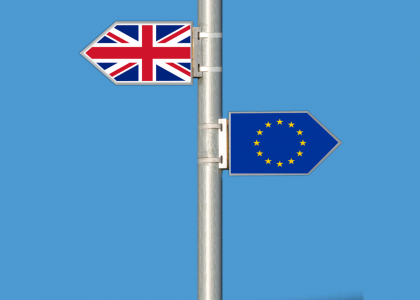Enough of the arrogance, Theresa May. Time to show EU nationals some respect – writes Marina Prentoulis.
As Theresa May tries desperately to pass her Brexit deal, she has developed a newfound interest in queues. Despite likely not having had to join a queue herself for many years, she explained to the nation how EU nationals in future won’t be able to ‘jump the queue’ ahead of ‘engineers from Sydney or software developers from Delhi’.
While Theresa May adds to the xenophobic environment that Europeans have had to tolerate since the referendum, she also seems to have a very distorted idea of how EU freedom of movement works. There was no ‘queue’ to jump, just as there was no queue for British nationals to live and work in the other 27 countries of the European Union.
As home secretary, May consciously created a ‘hostile environment’ for ‘illegal immigrants’. The result was the Windrush scandal – where people who had been in Britain for their whole lives faced deportation. Whatever reassurances the government offers about EU nationals keeping their rights, what might happen in 10, 20 or 50 years’ time? And this is no less the case for our software developer from Delhi, when the government decides they are no longer useful.
It is not only that many British nationals have never experienced what it means to be a migrant – after all, even when living in Spain, they consider themselves ‘ex-pats’. And it is not only that many have been oblivious to xenophobia in our society until Brexit brought it to the surface. It is that, even if you fight it, the empire mentality is part and parcel of Englishness.
We see this in the ignorance and arrogance of the attempts to blame the EU for being ‘difficult’ during the negotiations. In the Brexiteers’ world, Britain is so important and the EU needs it so much that the trade deal should have taken only minutes. Instead it has taken years and still satisfies no one. The strategy of blaming the other side no longer works when the British government has made such a public spectacle for two and a half years. By now, not only the EU side but large sections of the public know that ‘Brexit means Brexit’ really means not explaining the dangers and compromises that Brexit involves.
To be fair, the EU is not without fault too. Chief EU negotiator Michel Barnier explained a few days ago that the draft agreement has taken into account the UK positions, and after Brexit “the UK will have full control of their own legislation and rule-making”. This will not be the case for the next couple of years (until the end of the transition period in December 2020) but after that, depending on the future relationship with the EU. This statement by Mr Barnier shows his support for Theresa May’s government – the government speaking about three million EU nationals as if they are expendable and a burden to British society.
It is high time that the Brexiteers, with some assistance from the EU, started to deal with their Empire fantasies. Perhaps the EU could help Britain realise that the empire is dead by demanding the return of the various European treasures Britain has plundered over the years, starting with the Six
Counties for Ireland, Gibraltar for Spain and the Elgin Marbles for Greece. That is what the EU really being ‘tough’ on May’s government would look like. Perhaps with a bit of tough love, the British government might start treating the three million EU nationals who live here with the respect they deserve.
Dr Marina Prentoulis, Senior Lecturer in British & Comparative Politics, University of East Anglia
This article was originally published on Another Europe is Possible. Read the original article.





